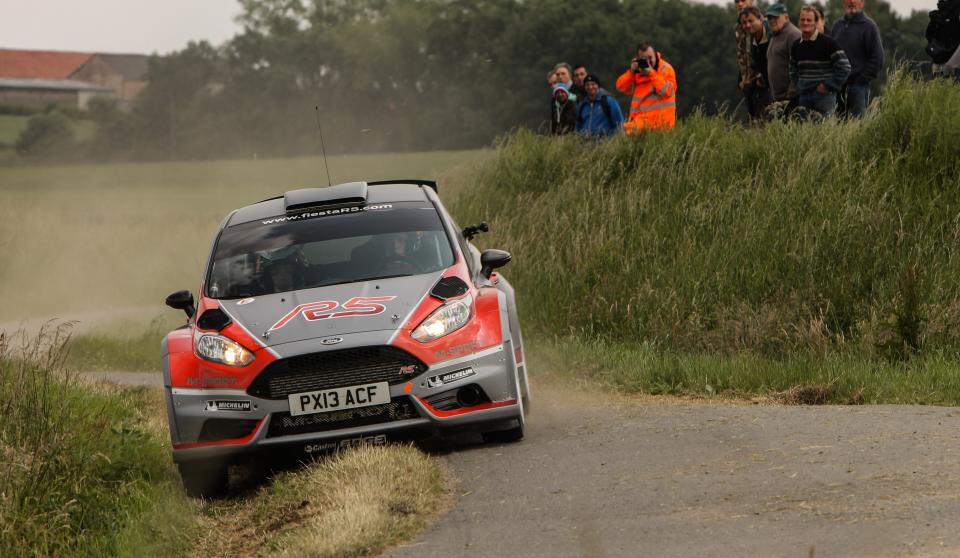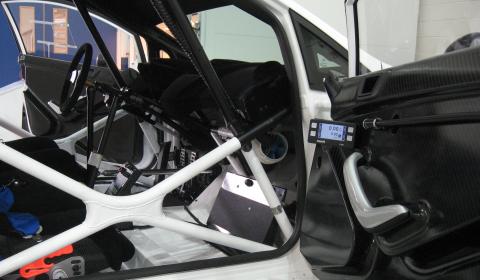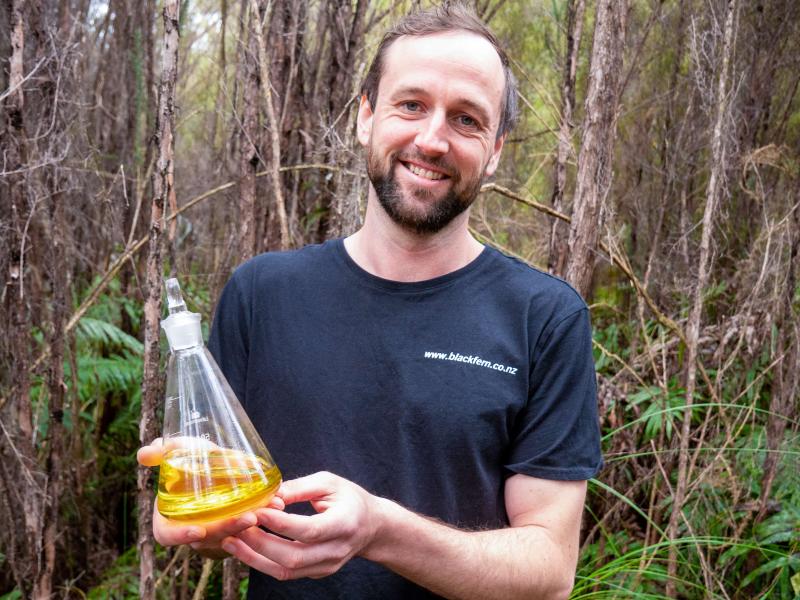James Holder made some smart decisions after leaving high school, and ended up on an export trip that was timed perfectly. Now his rally tripmeters are the preferred choice of most top World Rally Championship teams.
By Glenn Baker.
Careers advisors at high schools are not always known for accuracy when matching students with careers. But the advisors at the Invercargill high school James Holder attended were certainly on the money when they steered him towards engineering as a career choice.
The following year he was off to Canterbury University to study engineering.
“Design engineering was definitely not highly promoted back then, but it should be, as there are plenty of jobs and lots of variation in work. I’m obviously very glad I chose it,” says James.
After Uni he planned on working for Porsche in Germany but wanted to get some product design experience first. Fisher and Paykel Healthcare, one of New Zealand’s top product design employers, was happy to take him on.
“I really enjoyed my time there. It had a great working environment with a lot of like-minded engineers with similar interests, and has good scope for furthering your career.”
But James had bigger fish to fry – in 2006 he left to pursue his own business.
While forging his design engineering career, James had also become a bit of a rally enthusiast. It stemmed from his days growing up on his parents' Southland farm – where there was an old car he could race around the paddock in.
“When I headed to Uni, unfortunately the paddock was no longer available and I, together with some friends, got into a little trouble driving on an empty gravel carpark,” he recalls. “A bit more than a stern word from the police was the incentive for getting in contact with the local motorsport club to learn how to get started in rally driving.”
Once the paychecks started rolling in, James decided to give rallying a decent crack. Together with a friend he took on the national championship for a couple of years with some good success. Again, it was his Monit rally tripmeter business, absorbing all his funds and time, which would put a stop to his rallying career.
So how did this career-changing business come about?
James takes up the story: “While competing in the National Rally Championship, I looked around at the [tripmeters] available and their pricing and realised there was a gap in the market for a well-designed, easy-to-use product that delivered all the features required by a rally team.
“I discussed the idea with a friend from F&P and we began the company from there in 2006.
“Initially it was a lot of long hours and hard work. We were committed to ensuring we produced the best product and used our design knowledge to achieve this.”
James says the decisions on manufacturing were linked to cost vs benefit, and in the early days they did a lot of it themselves to save money.
Today production is far more streamlined and is based in Mt Maunganui.
With hindsight, James thinks they may have spent too much time and money on early marketing and establishing the brand, considering it’s a niche and competitive market.
He believes they were fortunate they found the right mix, had the right conversations and focused on producing the correct product for their customers.
Initially there was some assistance through an NZTE market development grant.
“Without that initial support the business may not have been in the position it is today,” says James. “Unfortunately when the Government changed they made that grant no longer available.”
High endorsement
Today Monit is well established globally. It’s the leading brand of rally tripmeters and brand used by most of the vehicle manufacturers in the World Rally Championship.
Customers include Citroen Racing, Peugeot Sport, M-Sport (who run the Ford WRC team), Opel Motorsport, Toyota Motorsport, Hayden Paddon (Hyundai WRC’s driver) and David Higgins (current Rally America champion). It is also the official tripmeter of the Endurance Rally Association, Peking to Paris rally, Targa New Zealand, and the Mercedes Classic Team (Mille Miglia).
James says setting up a strong distribution network was a tough process, and “ignorance was bliss”. With Europe the main market was a costly and time consuming process too. He admits, that to begin with, having discussions with companies big and small regarding commercial terms and general operating conditions put him well outside his comfort zone. But after a few errors along the way the distribution network has been developed into a solid collection of companies in more than 26 countries.
“Nowadays it’s nice and streamlined – orders come in through distributors, then products get sent out.”
Another hurdle on the journey was James’s business partner. In 2011 he left the country to join his girlfriend in the UK. A couple of years later he sold his company share to James.
“The lesson here is, if you’re going to have a business partner, make sure you both want to live in the same country!”
Mega support
James remembers working 60-plus hour weeks for the first year for zero pay. Any revenue was ploughed back into the business and overheads were keep to a minimum.
He’s grateful for his wife’s support. “Obviously having someone believe fully in you gives you confidence to take needed risks.”
A loan from a family member of his business partner to buy a machine was also crucial to getting off the ground.
“Lewis Gradon from Fisher and Paykel Healthcare helped me during the first year of the business too,” says James. “He was in charge of products and technology at F&P but more recently has taken over as MD and CEO; obviously talented at what he does but also a down-to-earth good sort.”
James’s advice for anyone starting a manufacturing business for a physical technology product is be prepared to do the hard yards when developing the brand and distribution.
With his business facing a bright future, thanks to rallying growing in popularity worldwide, there’s scope for growth in several areas, he says, and Monit will be looking closely at new opportunities going forward.
“I have a couple of other product ideas, not related to Monit or rally tripmeters, that I want to free up some time to work on. I’m looking at several options around this at the moment, but in the meantime some prototyping is happening which, for an engineer, is always exciting!”






